In July of 1969, I was at summer camp in Maine. It was an all-girls “sleep-away” camp, and the season was a full eight weeks.
I loved camp. It was a world away from my life in the suburbs, and to me it felt like a world unto itself. We lived in wooden cabins with no electricity. We used outhouses and bathed and shampooed in the lake. (This was before people realized that the suds from our Breck and Prell shampoos weren’t great for the ecosystem.) We all wore the same green shorts and white shirts, and we all swam in the freezing cold lake, climbed local mountains, and paddled canoes to go on camping trips.
We navigated at night with flashlights, mindful of the tree roots buried in pine needles. Our favorite pastime was playing jacks. I wrote home on pieces of birch bark, even though my mom had equipped me with stationery.
Read More: What We Lose When Technology Takes Over
A Moon Shot in the Dark
One night, after taps had been played and we were all asleep in our cabins, our counselor woke us up. We were all to go to the campfire area. Sleepy and confused, we stumbled our way out into the cool, dark Maine night. The whole camp had gathered.
Incredibly, we found a small black and white television set perched on a tree trunk. Multiple extension cords led from the back of the set into the main building we called “The Wiggy,” the only one with electricity.
We’d been brought to watch a man walk on the moon.
We strained to see the grainy image. You could barely make out what was on the screen, a fuzzy grey figure moving in almost slow motion. One of the counselors kept adjusting the antenna.
I don’t know what was more shocking: a television at camp or a man walking on the moon.
Afterwards, we headed back to our cabins. The batteries in my flashlight were weak, shedding only the palest light ahead. I stopped and pointed the flashlight up at the moon, as if that could make what I’d witnessed more comprehensible.
That particular moment—on the shores of Moose Pond, when the only night sounds were the lapping of the water and the loons calling one another—seems pivotal to me now. We would never again be quite so present, on Earth or in our minds.
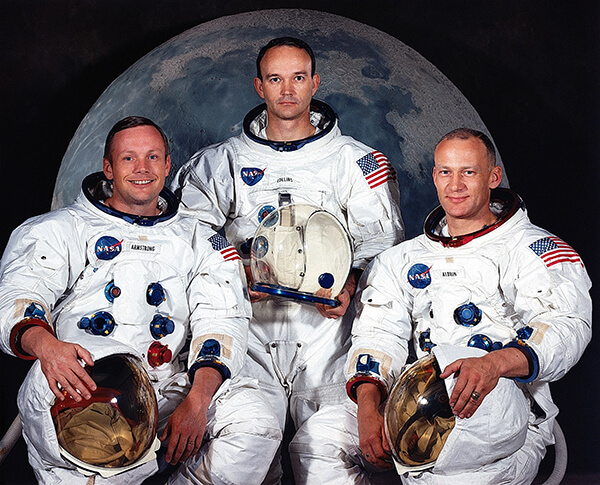
Left to right, are Neil A. Armstrong, commander; Michael Collins, command module pilot; and Edwin E. Aldrin Jr., lunar module pilot.
Fifty Years Later, Where Have We Gone?
Today, kids at camp own cell phones with more computing power than Mission Control had for the entire Apollo 11 mission. I’m impatient with romanticizing the past, and growing up the 50s and 60s were certainly not idyllic if you were a kid who thought you might be gay, or a kid of color, or a kid with disabilities, or a kid whose family suffered from mental illness, alcoholism, sexual abuse, or myriad other problems that simply weren’t acknowledged, let alone talked about.
The summer of the moon landing, I remember finding my counselor Mary crying in a grove of trees, her long straight blonde hair covering her pale, teenage face. Her boyfriend was in Vietnam.
But something important had been lost. Today, “mindfulness” has become almost a commodity, complete with apps, classes, courses, and retreats. We struggle to “to be present,” closing our eyes and counting our breaths or repeating a mantra or imagining a peaceful place. We try to clear our minds so as to be in the moment.
Yet it wasn’t so long ago that there only was the moment. Sure, we had anxiety. My generation remembers well atom bomb drills at school—close the classroom windows, shut the door, sit crouching, head down, back against the hallway wall, and lace your hands around the back of your neck. But there was an unreality to it. The threat was abstract. We drilled two or three times a year and were not bombarded with constant images of nuclear holocaust.
Life was radically different with no cell phones (and no phones at all at summer camp), no laptops, no internet, period. No alternate universe was constantly beckoning for our attention. We were present because that was the only place to be.
Read More: How to Raise Sons Who Won’t Turn Out Like Harvey Weinstein
What We’ve Found, What We’ve Lost
I’m no luddite, nor do I want to go back in time. But I’m sad that on a walk in the woods today, it doesn’t take long before I check for cell service. Or to whip out my phone and take a photo of some interesting moss and post it, instead of just looking at it. Even if I leave my phone at home, I worry. What if there’s an emergency with my Mom? What if one of my (grown) kids is trying to reach me?
Life hasn’t gotten more complicated—the world has long been dangerous, and people have always had children and aging parents. Only the urgency is new. As is the idea that instead of smelling the pines, listening to the wind, and watching the sunlight flicker through the branches, more important things are likely going on elsewhere that should be commanding our attention.
Oh, those brave men, exploding out of the atmosphere in their tinny spacecraft to explore new worlds. It was an amazing technological feat in 1969 and seemed like the beginning of a new modern age. We put a man on the moon! But gazing up at the sky, I wonder if that was also the moment we lost our focus down here.
***
Kate Stone Lombardi has been a journalist for more than 25 years. She work has appeared in the The New York Times, The Wall Street Journal, Time, Ladies Home Journal, Parenting Magazine and other national publications. Lombardi is the author of The Mama’s Boy Myth: Why Keeping Our Sons Close Makes Them Stronger.
Images: NASA/Handout/Getty Images

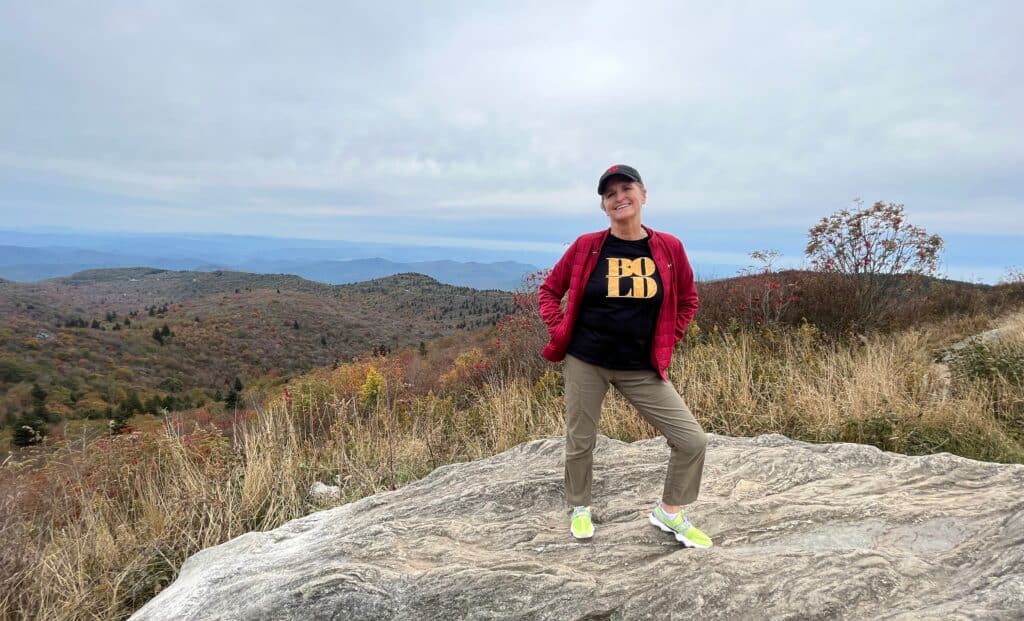















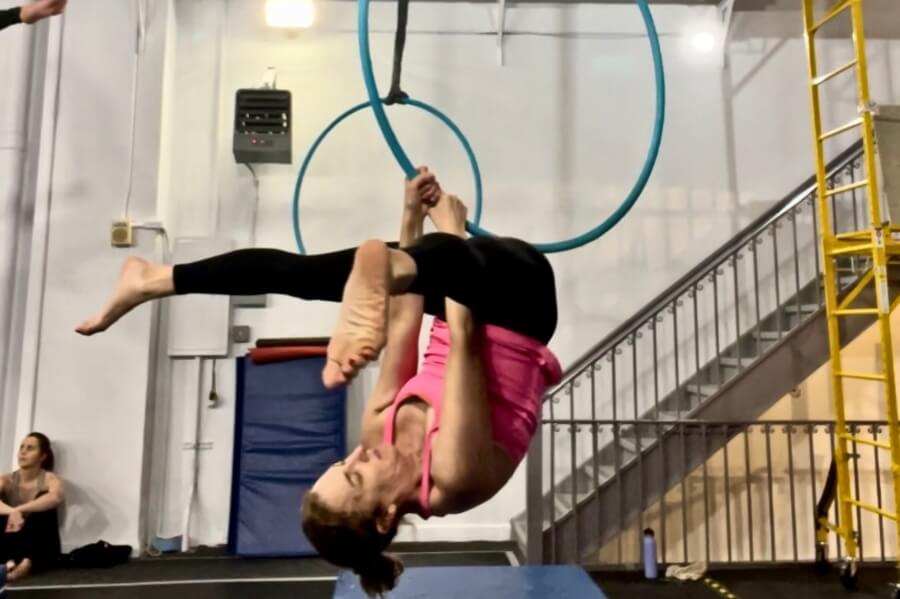
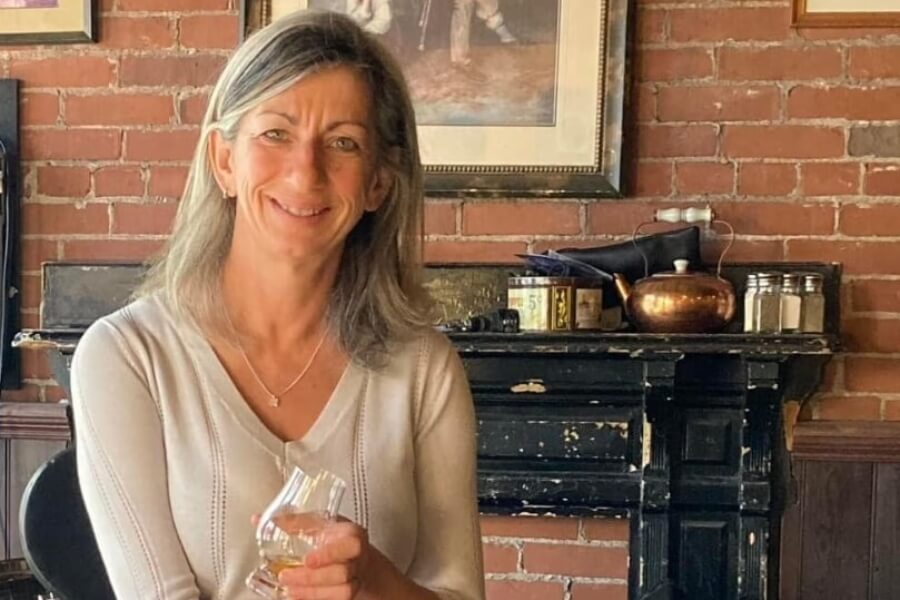
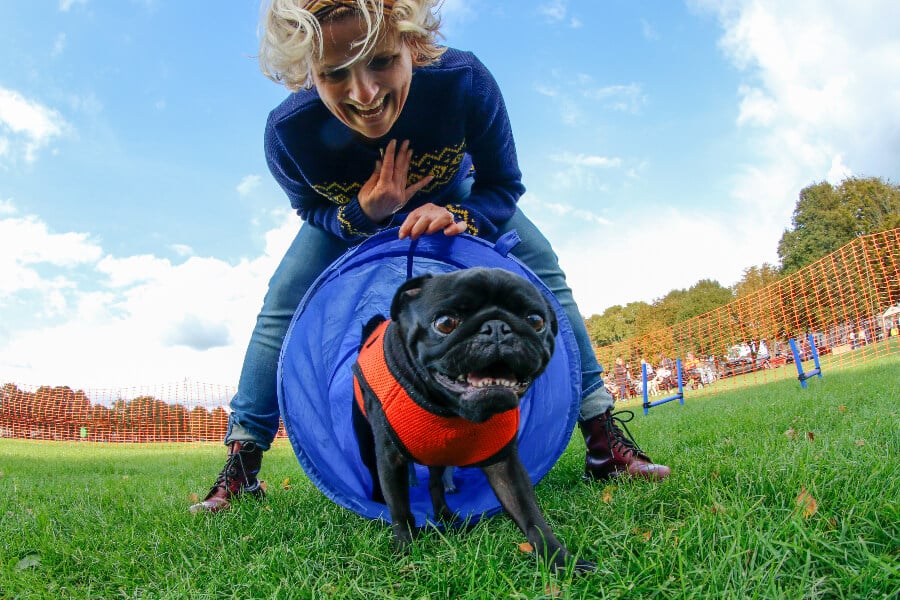
0 Comments